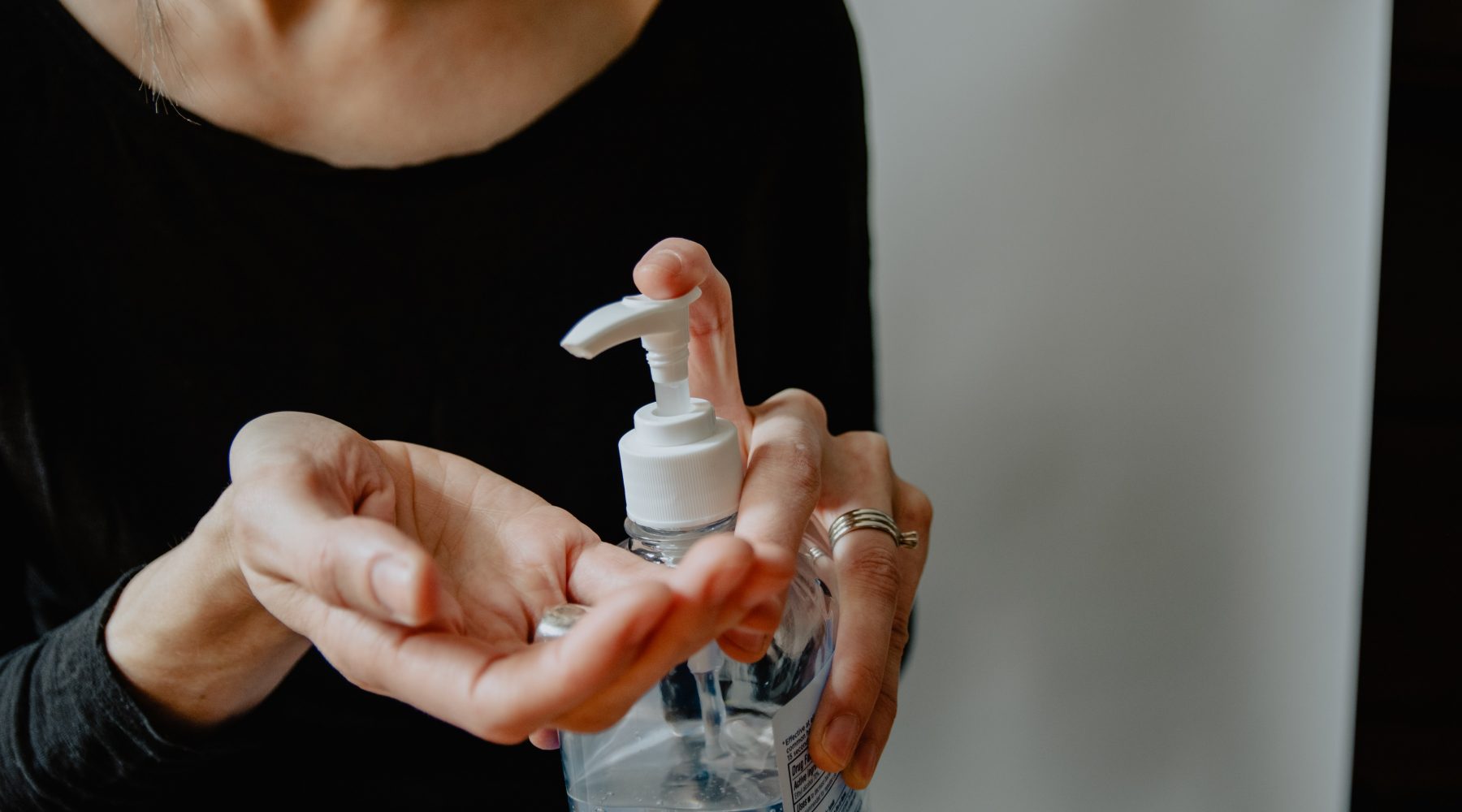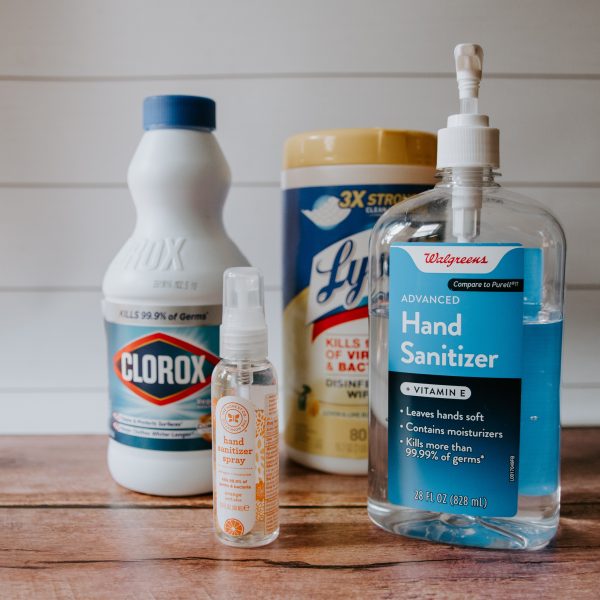SafeWork issues specific guidance for ECEC on COVID-19 risks

While many early childhood education and care (ECEC) services still operational around Australia, service owners, operators and leaders are conscious of their obligations in relation to Work Health and Safety (WHS) laws which require all employers to take care of the health and safety of their workers (staff, contractors, volunteers) and others (children, parents and visitors) at the workplace.
The COVID-19 pandemic poses unique challenges for the sector, particularly in light of supply issues in relation to risk minimising tools such as soap, disinfectant, bleach and other cleaning supplies. Employers are required to provide and maintain a work environment that is without risk to health and safety, and provide adequate facilities for staff to carry out their work.
In terms of their responsibilities around the pandemic, as with all other WHS issues, employers must identify risks at the workplace, and where possible eliminate or minimise those risks so far as is reasonably practicable.
Since it is not feasible for most centre based ECEC workers to perform their job from home, Safe Work Australia have prepared a list of suggestions for employers to support them in their obligation to do all that they can to minimise the risk of exposure to COVID-19 so far as reasonably practicable.
Physical distancing
One of the most effective ways to minimise the spread of the COVID-19 virus is to limit physical proximity between people, Safe Work said, recommending the following practical measures to encourage physical distancing:
- calculate the area of each room, and the number of staff and children in attendance each day, and direct workers to space an appropriate distance apart to continue performing their duties, acknowledging that staff will have to come into contact with children;
- encourage workers and visitors to physically distance themselves through increased signage and information;
- encourage the use of outdoor space as much as possible;
- stagger staff breaks and encourage workers to physically distance themselves in break rooms and when using shared spaces;
- limit the number of visitors to the centre (e.g. cancel incursions and non-essential training); and,
- discourage use of public transport by staff if possible, or if not feasible, recommending that workers:
- travel at off peak times
- wash or sanitise hands before and after travelling on public transport, and
- maintain physical distancing measures during any trip.
Hygiene
Environmental cleaning
The amount of time the COVID-19 virus survives on inanimate objects and surfaces will vary. Environmental cleaning is one way to remove the virus that causes COVID-19. Employers should ensure:
- that frequently touched surfaces and objects such as doors, windows, tables, benchtops, nappy change areas and toys are cleaned and disinfected frequently using appropriate detergent and disinfectant solutions; and,
- that people cleaning the workplace wear gloves and use alcohol based hand sanitiser before and after wearing gloves.
See the Department of Health information sheet on environmental cleaning and disinfection-principles for COVID-19 for further information.
Worker Hygiene
Workers should be required to practice good hygiene, including:
- frequent hand washing;
- limiting contact with others, where possible; and,
- covering their mouths while coughing or sneezing.
Washroom facilities for workers should have adequate facilities for good hygiene such as adequate supply of soap, water and toilet paper. These must be kept clean, properly stocked and in good working order. Supplies of hand sanitiser should be provided around the centre, where possible.
Staff should also be informed about the risk of exposure and good hygiene through increased signage and information. The Australian Government Department of Health has a range of posters and other resources aimed at educating the public about COVID-19. These posters can be placed in client-facing work environments.
Further information about health and hygiene in ECEC services is also available in the National Health and Medical Research Council publication, Staying healthy: Preventing infectious diseases in early childhood education and care services.
General advice for workers, families and others includes:
- Avoid touching your mouth, eyes, and nose with unwashed (or gloved) hands.
- Clean your hands thoroughly for at least 20 seconds using soap and water, or alcohol based hand rub.
- Cover your nose and mouth when coughing and sneezing with a tissue or a flexed elbow. Put tissues in the bin.
- Avoid close contact with anyone with cold or flu-like symptoms.
- Physical distancing- maintain a 1.5 metre distance to others (two arms length).
- Stay home if you are sick.
- Seek medical advice if you have a fever, cough, sore throat or shortness of breath (call your doctor or healthdirect on 1800 022 222).
Consultation and communicating with ECEC employees
Those who own, operate and manage ECEC employees must consult with them on health and safety matters relating to COVID-19. Employees should be given an opportunity to express views before any decisions are made.
“Workers are most likely to know about the risks of their work. Involving them will help build commitment to this process and any changes,” Safe Work said.
The model Code of Practice: Work health and safety consultation, cooperation and coordination can provide more information about the duty of an employer to consult.
“You need to communicate clearly with workers about control measures. Provide clear direction and guidance about what is expected of workers” Safe Work noted, saying that employees should clearly know:
- when to stay away from the workplace
- what action to take if they become unwell
- what symptoms to be concerned about.
Owners, operators and leaders should remind employees of their duty to take reasonable care of their own health and safety and to not adversely affect the health and safety of others.
In addition, employees should be provided with a point of contact to discuss their concerns, and access to support services, including employee assistance programs.
From an employer perspective, it is encouraged that employers keep their knowledge of the COVID-19 situation up-to-date and follow advice from authoritative sources such as the Australian Government Department of Health, checking daily for any updates to safety advice.
While it may not be possible to have a remote workforce as a way of minimising risk, employers should still avail themselves of the “many steps” which can be taken to minimise the risks in an early childhood education and care service, Safe Work said.
“Make sure your service is properly resourced to manage WHS risks during the COVID-19 outbreak, and check that the resources are being used. Review your policies, procedures and reporting process to ensure they remain current for any incidents, hazards and other WHS issues that arise during this time. Update these materials if necessary. Ensure all that these are communicated clearly and processes are being followed. Consult with workers and ensure there is a means for them to raise any concerns about the steps you are taking to manage the risks,” a spokesperson added.
Further information
- For general advice for employers on managing risks to exposure to the COVID-19 virus, go to COVID-19 Information for workplaces.
- For further information on risk management, see the model Code of Practice: How to manage work health and safety risks.
- Further information is also available in each jurisdiction on managing risks to exposure to the COVID-19 virus, including the following information for early childhood education and care services:
New South Wales
- Simple steps for slowing the spread by social distancing: Act now
- Early childhood education – COVID-19 (novel coronavirus) – FAQs for services and providers
Queensland
- COVID-19 and service operation
Australian Capital Territory
- Information on novel coronavirus (COVID-19) for Early Childhood
- Novel coronavirus (COVID-19) social distancing and hygiene measures for early childhood services
- Novel coronavirus (COVID-19) social distancing and hygiene measures for preschools
South Australia
- Frequently asked questions about COVID-19 for schools and preschools
Victoria
- Coronavirus (COVID-19) advice for early childhood services
Commonwealth Department of Education, Skills and Employment
- Coronavirus (COVID-19) information sheet for child care providers and services
Related information
- What to do if a worker has COVID-19 – Infographic
- 5 things to do in your workplace: COVID-19 – Infographic
- Small business: WHS advice for COVID-19
- Workers: WHS advice for COVID-19
- Industry fact sheets
- National Statement of Regulatory
Popular

Quality
Practice
Provider
Research
Workforce
Honouring the quiet magic of early childhood
2025-07-11 09:15:00
by Fiona Alston

Workforce
Policy
Quality
Practice
Provider
Research
The silent oath: Why child protection is personal for every educator
2025-07-17 09:00:31
by Fiona Alston

Practice
Provider
Quality
Research
Embedding cultural safety and responsiveness to strengthen belonging in early childhood education
2025-07-14 13:21:23
by Contributed Content











